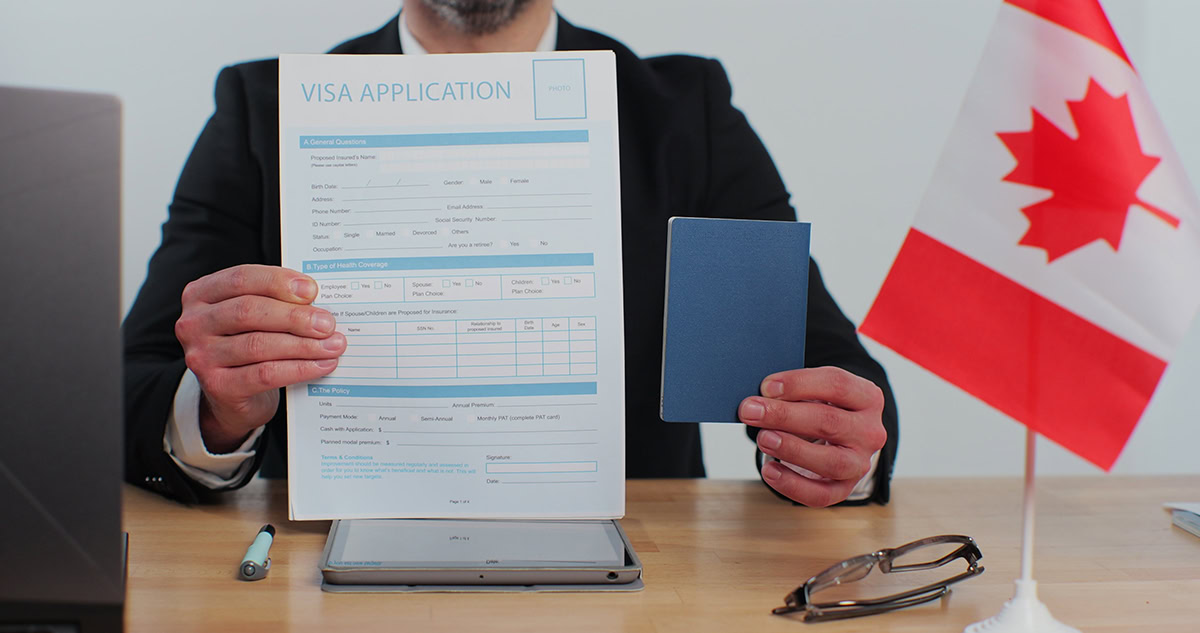Canada is internationally recognized for its strong commitment to human rights and has a well-established refugee protection system. In case you fear persecution in your own country and are planning to seek asylum in Canada, it is very important to be aware of the particular procedures and of your rights.
1. Understanding the Basics: What Is Asylum?
Claiming asylum, or, in legal terms, claiming refugee protection, is requesting Canada to offer you protection because you fear going back to your country of origin, as it would be harmful to your life, freedom or safety. The asylum is granted to the people who can demonstrate that they fear persecution on account of their race, religion, nationality, political opinion, membership in a particular social group, or likelihood of being tortured or subjected to inhuman treatment.
2. Where & How to File Your Claim
The refugee status application process begins either at a port of entry or through an inland claim.
On Arrival at a Port of Entry
If arriving at an airport, land border, or seaport, declare your intent to seek refugee protection. A CBSA (Canada Border Services Agency) officer will:
- Conduct an initial interview
- Provide necessary forms and explain the next steps
- Refer your application to the Immigration and Refugee Board (IRB) after assessing eligibility
Inland (After Entry)
If you are already in Canada via a visa or visitor status, you can file your claim:
- At an IRCC (Immigration, Refugees and Citizenship Canada) office, or
- Online within the required timelines
You must show you’ve not been issued a removal order and you have valid reasons for requesting protection.
3. Eligibility Check & Referral to the IRB
Once your claim is submitted, IRCC or CBSA will conduct an eligibility review. They check:
- Whether you’re ineligible (e.g., due to serious criminality, prior claims, or protection elsewhere).
- Risks to Canada’s security
- Adherence to the Safe Third Country Agreement (you will be ineligible in case you applied in the U.S. first, unless an exception applies to you or you have waited 14 days after entry).
In case you are eligible, your claim is passed to the Refugee Protection Division (RPD) of the IRB.
4. Completing the Basis of Claim (BOC) Form
You’ll receive a Basis of Claim (BOC) Form, a vital document where you:
- Describe why you’re at risk
- Attach pertinent evidence (affidavits, police reports, medical records, news articles)
File this form within the deadline—usually 15 to 45 days, depending on how and where you claimed.
5. Preparing for Your Hearing
Your hearing before the RPD is a formal setting where your credibility and claim are evaluated. Preparation steps include:
- Compiling any additional proof
- Seeking counsel from legal professionals or accredited representatives
- Familiarizing yourself with hearing procedures and setting a confident tone
6. The Hearing & Decision Process
At the hearing:
- A member of the RPD questions you
- You may bring a representative, interpreter, and witnesses
Decisions usually take weeks to months. If approved, you are granted a “protected person” status and can apply for permanent residence within Canada. If rejected, you may appeal to the Refugee Appeal Division (RAD) or seek judicial review in the Federal Court. You can also consult with our refugee lawyers in Toronto.
7. Legal Rights of Asylum Seekers in Canada
While your claim is processed, you enjoy several legal rights:
- The right to an oral hearing under the Charter (Singh v. Canada)
- Protection under non‑refoulement, meaning you cannot be forcibly returned to a country where you face life-threatening risks
- Access to health services through the Interim Federal Health Program, though coverage may vary
- Basic social services and family reunification options
- Rights of appeal, review, and due process are guaranteed under the Charter and IRPA
8. Things to Watch (2025 Update)
Recent developments in 2025 affect asylum applicants:
- The Strong Borders Act (June 2025) may restrict access to asylum claims, allowing retroactive rejection for those in Canada over a year
- Bill C‑65 proposals could render additional foreign nationals ineligible for asylum
- Overall, refugee claims have dipped significantly in 2025 as Canada has tightened its policies
Pro tip: Acting promptly with professional legal assistance increases your chances of a smooth process and successful outcome.
9. Where to Find Asylum Application Help in Canada
Countless Canadian organizations offer support—legal, medical, and social:
- UNHCR Canada provides regional resources and explains the claim process
- Government sites like Canada.ca outline steps, eligibility, and health options
- Community legal clinics and NGOs often provide translation, counselling, and accompaniment
- Private immigration lawyers offer comprehensive support tailored to complex cases.
10. Why Legal Help Matters
Navigating the refugee claim process in Canada is complex. Missing deadlines, providing insufficient documentation, or misunderstanding eligibility rules can lead to refusal, even if your case is strong. Accredited legal professionals help you:
- Evaluate your eligibility and asylum strategy
- Prepare a compelling, evidence-backed Basis of Claim
- Represent you effectively at eligibility interviews and hearings
- Advise on appeals, humanitarian‑compassionate options, or judicial review
Conclusion: Choose the Right Partner for Your Refugee Claim
Seeking asylum in Canada is a big, high-stakes process that needs clarity, accuracy, and empathy. As laws change, timelines speed up, and eligibility becomes more tightly defined, refugees require an ally familiar with all the human and legal intricacies of the system.
Kurzfeld Law Firm, led by immigration expert Ronen Kurzfeld, brings the deep experience, nuanced insight, and large-scale support structure essential for today’s asylum seekers. Our team:
- Has a record of winning complex refugee claims
- Stays current with policy updates like the Strong Borders Act
- Offers compassionate, multilingual support at every step
If you’re contemplating an asylum claim in Canada, Kurzfeld Law Firm stands ready to support your journey to protect your rights, present a powerful case, and help you find safety in Canada.





